The short life of Forough Farrokhzad had a great impact on Iran's poetic heritage, and she is still in the vanguard of modern Persian poetry. She was only 17 when her first poetry collection was published, and two more had been published by the time she reached the age of 23.
Farrokhzad was killed in a traffic accident in 1967 when she was just 32. For many Iranians alive at the time, the memory is still painful, even today. She is still talked about, especially in artistic circles, because she is seen as a poet who took remarkable steps for women and literature. Her poems are still regularly reviewed and analyzed. Her books continue to be reprinted, and documentaries are still being made about her and her work.
Farrokhzad was born in 1935 in Amirieh, one of the oldest neighborhoods of Tehran. She was the third of seven children. Her father was an army colonel and her mother a homemaker. She was only 16 when she married Parviz Shapur, a well-known humorist who worked with the highly successful satire magazine Towfigh. He had been a neighbor and a relative of the poet’s mother. They had one son, Kamiar, but their marriage did not last: they divorced after two years, in 1954. Their correspondence, which began before their marriage and continued after their separation, was published under the title “My Heart’s First Love Palpitations.”
“The Captive,” her first collection of poems, was published a year after their separation, in 1955. Many conservative members of Iran’s patriarchal society responded negatively to her poetry, which was considered by many to be feminist. Not long after the publication of the poems, she had a nervous breakdown.
In 1956, Farrokhzad published her second volume of poetry, “The Wall,” which she dedicated to her ex-husband.
She traveled to Europe in 1958 and spent nine months touring the continent. After returning to Iran, she found a job with Golestan Film Studio, which was owned by Ebrahim Golestan, the avant-garde Iranian writer and filmmaker. Farrokhzad was first hired as a secretary but, little by little, she learned to edit films. She wrote and translated plays and appeared on stage in a play directed by Pari Saberi.
Many critics believe that Farrokhzad’s working relationship with Golestan led to a change in her poetry, and saw the poet becoming more liberated in expressing herself. In particular, critics point to her poetry collections “Another Birth and Let Us Believe In The Beginning Of The Cold Season,” which were published after Farrokhzad began working at the film studio.
In 1963, four years before her death, she directed “The House Is Black,” a short documentary about a leper colony in Tabriz, the provincial capital of East Azarbaijan. The film received favorable reviews in various international festivals. The documentary won the “best documentary” prize at the Oberhausen International Short Film Festival in Germany.
For Farrokhzad, “The House Is Black” was more than a documentary. After working on the project, she adopted a boy named Hossein Mansouri, who lived with his parents in the leper colony and appeared in scenes in the documentary. After her death, he emigrated first to London and then to Germany. He studied sociology and he became a poet and a translator of poetry.
In 1963, UNESCO produced a 30-minute documentary about Farrokhzad. Italian film director Bernardo Bertolucci traveled to Iran to interview her, and later produced a short film about her life and work.
Fereydoon, Forough’s younger brother, grew up to become a singer, lyricist, comedian and a successful TV show host. He was detained for a short period following the 1979 Islamic Revolution and later moved to Germany, where he completed a PhD in political science. He remained a supporter of the monarchy and was assassinated in Bonn in 1992. The crime remains unsolved, but many believe that it was the work of agents of the Islamic Republic.
“When Forough’s poems were published in magazines,” Fereydoon said at an event commemorating his sister, “many people cursed her and accused her of being a harlot because she talked about things in her poetry that the patriarchal society of the time would not accept from a woman. Even some intellectuals insulted her. But Forough did not retreat. She would say, ‘Don’t call me a woman poet. I’m a poet and if a male poet can talk about love, so can I.’”
Forough Farrokhzad’s poems have been translated into many languages including English, French, German, Italian, Russian, Uzbek and Turkish.
Several of her books were banned after the Islamic Revolution, but the underground market for her work still thrives and both her contemporaries and younger generations revere her poetry.
Given the subject matter and content of much of her poetry, it is not surprising that she continues to be revered. Her words are more relevant — and more feared by those in a position of authority, some would say — than ever before:
Sister, rise up after your freedom,
Why are you quiet?
Rise up because henceforth
You have to imbibe the blood of tyrannical men.
Seek your rights, Sister,
From those who keep you weak,
From those whose myriad tricks and schemes
Keep you seated in a corner of the house.
How long will you be the object of pleasure
In the harem of men's lust?
How long will you bow your proud head at his feet
Like a benighted servant?
visit the accountability section
In this section of Iran Wire, you can contact the officials and launch your campaign for various problems




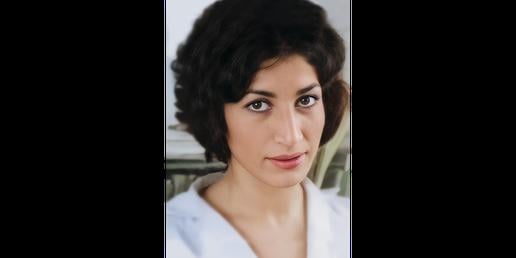
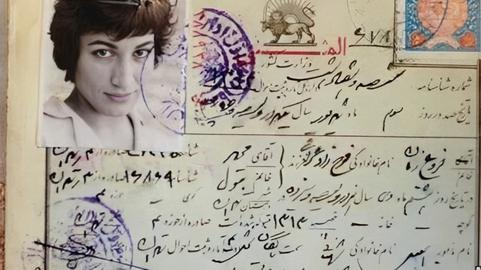
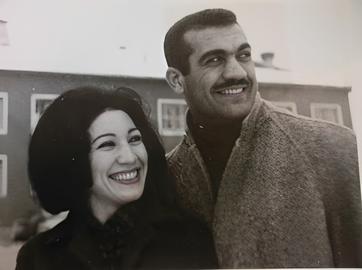





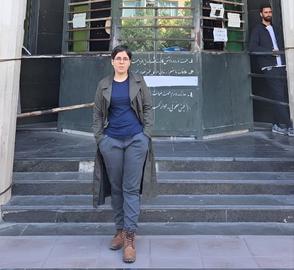
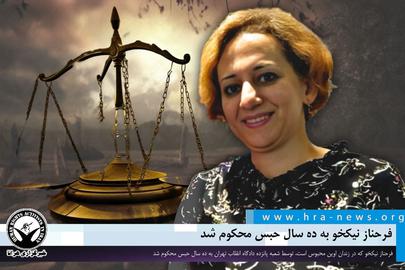







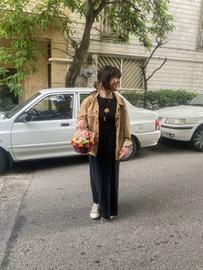
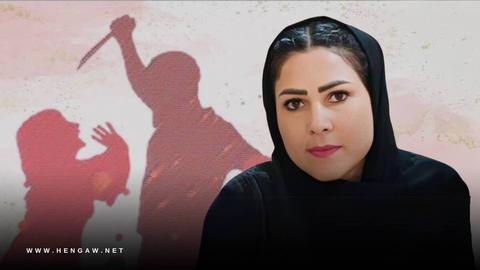




comments